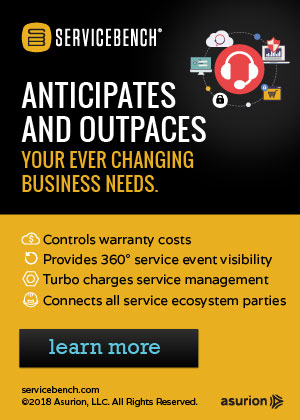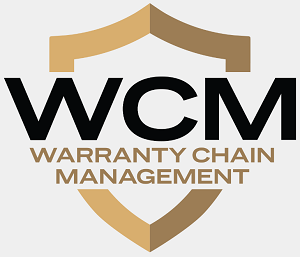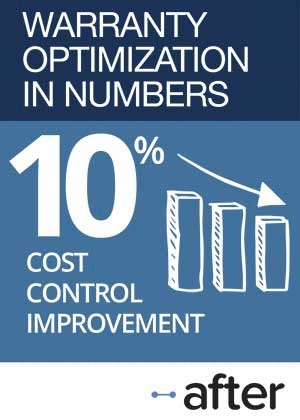Service Contract Underwriters:
The insurance companies that back service contracts are graded on their financial stability. And while the Detroit Three automakers and some of the other recipients of the TARP bailout billions get relatively low grades, most of the majors remain on the honor roll with an A- or better.
Those who buy and those who sell service contracts want the same thing: to do business with companies that are likely to be both willing and able to pay claims and make repairs in a few years' time.
But how can you tell the difference? As we continue our tour of the service contract industry, people keep mentioning the same two words: stability and longevity. When looking for an administrator or an underwriter, you'll want to look past price and profitability towards metrics that rate a company's ability and willingness to remain in the service contract business for the long haul.
In terms of benchmarks, most people quickly point to the Financial Strength Ratings issued by A.M. Best Company Inc. -- itself a 111 year-old enterprise -- as a shorthand measure of an insurance company's ability to pay claims over the long term. And then of course the year a company entered into the service contract business is a measure of its ability to survive during the tough years.
So as we get ready to develop some new market share estimates for the vehicle service contract industry, and then try to do the same for consumer electronics, wireless handsets, appliances, jewelry and computers, the most obvious questions are: Who are the insurance companies involved in the service contract industry and what are their A.M. Best ratings?
In the chart below, we have listed some 42 admitted carriers and two risk retention groups that serve as underwriters to one or more service contract administrators. While most of those administrators are in the vehicle service contract sector, some are exclusively in the consumer electronics, appliance, or home warranty sectors. But since we're not yet ready to list all those administrators, we're not making that distinction here with this list.
We are, however, including the ultimate parent company of each underwriter, for three reasons. First, the proper names of the underwriters may be unfamiliar to those who don't regularly read the fine print in service contracts. Second, some of these underwriters have no employees, no offices and no web sites, so we needed something concrete to link them to (in the four cases where the underwriters had no parents, we repeated their name twice -- again, so we had something to link then to). And third, if we didn't list the parent companies, we'd have no reason to mention that Assurant Solutions and AmTrust Financial Services are among the sponsors of this newsletter.
Double Plus Good
A.M. Best considers grades of A++ and A+ to be in the Superior range, while A and A- are considered merely Excellent. B++ and B+ are considered Good, and anything else is considered to be vulnerable. If these were bonds, anything below a B+ would be considered "junk."
In the chart below, there are no A++ recipients, but there are six with an A+, 18 with an A, and 13 with an A- grade. Warranty professionals and service contract experts, please check the list for your own underwriters, and please report any errors or omissions as soon as possible. And please report any changes in the future, so we can keep this chart as current as possible.
Service Contract Underwriters
Current A.M. Best Ratings
(as of Feb. 11, 2010)
| Service Contract Underwriter | Parent Company | A.M Best Rating | Outlook |
| American Bankers Insurance Company of Florida | Assurant Inc. | A | stable |
| American Guarantee and Liability Insurance Co | Zurich Financial Services Ltd | A | stable |
| American Modern Home Insurance Co | Munich Re Group | A+ | stable |
| American Road Insurance Co | Ford Motor Co. | B+ | negative |
| American Security Insurance Co | Assurant Inc. | A | stable |
| American Zurich Insurance Co | Zurich Financial Services Ltd | A | stable |
| Chrysler Insurance Co | Chrysler Financial | B++ | negative |
| CIM Insurance Corp | GMAC Financial Services | B++ | developing |
| Colony Specialty Insurance Co | Argo Group International Holdings Ltd | A | stable |
| Continental Insurance Co | CNA Financial Corp | A | stable |
| Courtesy Insurance Co | JM Family Enterprises Inc. | A | positive |
| Dealers Assurance Co | Dealers Assurance Co | A- | negative |
| Evergreen National Indemnity Co | ProAlliance Corp | A- | stable |
| Fireman's Fund Insurance Co | Allianz SE | A | stable |
| First Colonial Insurance Co | Allstate Corp. | A- | stable |
| General Fidelity Insurance Co | Bank of America Corp. | A- | negative |
| Global International Insurance Co Inc, a RRG | Guardian Warranty Corp. | A- | stable |
| Great American Insurance Co | American Financial Group Inc. | A | stable |
| Greenwich Insurance Co | XL Capital Ltd | A | stable |
| Hartford Fire Insurance Co | Hartford Financial Services Group Inc. | A | stable |
| Heritage Indemnity Co | Heritage Indemnity Co | A | stable |
| Illinois National Insurance Co | American International Group Inc. | A | negative |
| Liberty Mutual Insurance Co | Liberty Mutual Holding Co Inc | A | negative |
| Lyndon Property Insurance Co | Protective Life Corp | A- | negative |
| Lyndon Southern Insurance Co | Fortegra P&C Group | B++ | stable |
| MIC General Insurance Corp | GMAC Financial Services | B++ | positive |
| MIC Property & Casualty Insurance Corp | GMAC Financial Services | B++ | developing |
| National Casualty Co | Nationwide Mutual Insurance Co | A+ | negative |
| New Hampshire Insurance Co | American International Group Inc. | A | negative |
| Ohio Indemnity Co | Ohio Indemnity Co | A- | stable |
| Old Republic Insurance Co | Old Republic Insurance Group | A+ | negative |
| Old United Casualty Co | Old United Group | A | stable |
| Pacific Specialty Insurance Co | McGraw Group | A | stable |
| Sentruity Casualty Co | GSFSGroup | A- | stable |
| Sompo Japan Insurance Co of America | Sompo Japan Insurance Inc. | A+ | stable |
| Stonebridge Casualty Insurance Co | AEGON NV | A- | stable |
| Titan Insurance Co Inc, a RRG | Ethos Group Holdings Inc. | A- | stable |
| Toyota Motor Insurance Co | Toyota Motor Corp. | A- | stable |
| Travelers Indemnity Co | Travelers Companies Inc. | A+ | stable |
| Universal Underwriters Insurance Co | Zurich Financial Services Ltd | A | stable |
| Virginia Surety Co Inc | The Warranty Group Inc | A- | stable |
| Wesco Insurance Co | AmTrust Financial Services Inc | A- | positive |
| Westchester Fire Insurance Co | ACE Group of Companies | A+ | stable |
| Western General Insurance Co | Western General Insurance Co | B++ | stable |
| Source: Warranty Week from A.M. Best financial strength ratings data |
Next to each company's A.M. Best rating, we have included the company's latest Rating Outlook, which is the direction in which A.M. Best's analysts believe the rating is going over the next 12 to 36 months. According to A.M. Best,
- A positive outlook indicates that a company is experiencing favorable financial and market trends, relative to its current rating level. If these trends continue, the company has a good possibility of having its rating upgraded.
- A negative outlook indicates that a company is experiencing unfavorable financial and market trends, relative to its current rating level. If these trends continue, the company has a good possibility of having its rating downgraded.
- A stable outlook indicates that a company is experiencing stable financial and market trends, and that there is a low likelihood the company's rating will change over an intermediate period.
Meanwhile, a developing implication indicates that A.M. Best believes a change is coming, but is as yet unsure about its direction. In other words, the rating is unstable but it's not yet clear whether it's trending up or down.
Fixing a Hole Where the Rain Gets In
Ten underwriters got the "negative" tag. A quick glance at the list of companies most damaged by the financial panic of 2008 explains several of those tagged thusly: Chrysler, General Motors, AIG, Bank of America, etc. And then three got the "positive" tag, including, incongruously, one of GMAC's insurance carriers. All others were listed as stable.
GMAC was also the only company to get the "developing" tag, but only two of its three underwriters got it. MIC General Insurance Corp. was the one that got a positive implication next to its B++ rating. But all three got that grade, which is below the A-rated threshold typically sought by lenders, dealers, and administrators.
Dealers Assurance Co., Lyndon Property Insurance Co., and General Fidelity Insurance Co. were the only A-rated carriers threatened with a downgrade to B++ or below (an A- rating with a negative implication). Besides GMAC, Ford's and Chrysler's underwriters, along with Lyndon Southern Insurance Co. and Western General Insurance Co., were the only admitted carriers with anything below an A- grade.
Therefore, the companies that actually manufacture the cars are in a position to both issue a vehicle service contract and a financing package for the vehicle through their franchised dealerships. But if they follow the generally-accepted rules of the industry, they may have to then reject the option to finance those VSC purchases, because the A.M. Best rating of the underwriter (themselves) is below the minimum threshold sought by the lenders (themselves).
The Risks of RRGs
There are also two risk retention groups on the chart. There are many more RRGs in the service contract business, but these are the only two we could find that have bothered to secure an A.M. Best rating for themselves. Titan Insurance Co. Inc., a RRG, (by law, the tag RRG must be part of the company's name) is the risk retention group used by the Ethos Group to underwrite the service contracts it sells through auto dealers. Global International Insurance Co. Inc., a RRG, is the name of the risk retention group owned and operated by Guardian Warranty Corp.
Both of these RRGs are rated A- with a stable outlook. Both companies have been around for more than a decade. Therefore, they both would seem to pass muster in terms of both financial stability and longevity. And there are numerous dealer-owned RRGs that act quite dependably over long periods of time as reinsurance vehicles for service contracts, allowing the dealers to share in the ultimate profitability of their programs. In other words, a well-run risk retention group can be just as reliable and just as highly-rated as an admitted carrier.
The problem is that a handful of service contract-related RRGs have been so poorly run and have deteriorated so quickly that they besmirched the reputation of the whole sector. Heritage Warranty Insurance RRG Inc. crashed and burned in 2007, while the National Warranty Insurance RRG flamed out quite spectacularly in 2003. NWIG, in fact, had an A.M. Best rating of A- as late as February 2003. By that summer, they were in liquidation, with an A.M. Best rating of F. Numerous car dealers and their customers were left in the lurch.
Observers say the problem isn't so much that they were RRGs, as that the RRG structure they used can also be abused and exploited by those looking for a loophole. Heritage was domiciled in South Carolina, where the regulators are not exactly known for their tenacity. National Warranty turned out to be domiciled in the Cayman Islands, where the only regulators to be found are on snorkeling equipment.
Self-Insured Administrators
And then there are numerous service contract administrators and dealerships that have the backing of neither an admitted carrier nor an RRG. Instead, they self-insure their extended warranty liabilities. There's nothing wrong with this choice, but it does complicate the tasks (and cost) of complying with state laws and recognizing revenue. And, like a person who lives without health insurance, it means the company is going to have to pay its repair bills from the first dollar to the last, even if it is their last. But if they don't get sick, they save money.
For 22 years, Penn Warranty Corp. has self-insured its vehicle service contracts, selling primarily through used car dealerships in states that allowed self-insured administrators like them to operate. But this week, it announced its intent to sign with the Virginia Surety Co. as an underwriter, thus gaining the prestige of the backing of an admitted carrier with an A- rating, and thus reducing the difficulty (and cost) of complying with state insurance regulations.
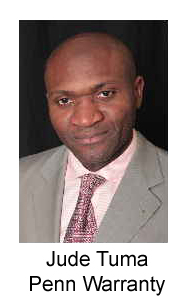
Jude Tuma, president of Penn Warranty, said it was actually the latter that was the most appealing factor behind the switch from self-insured to fully-insured.
"To be honest with you, the dominant reason why we did this was to give us a solid growth platform," Tuma said. "By that I mean we are able to penetrate some of the markets and some of the states where we were not able to as a self-insured provider."
And then there is also the marketing appeal of being able to tell Penn's used car dealers that its underwriter has an A- rating. But Tuma said this was secondary to the ability to now expand into more states.
Sign of Stability
"I think it's a sign of stability," Tuma said of Virginia Surety's A- rating. "You want to be certain that they'll be around for a long time, because this is a very long-term relationship. The A-rated carrier is just an indication of how solid the company is."
Tuma said there were basically three choices for Penn Warranty: remain self-insured, form an RRG, or sign with an admitted carrier. The first choice reduced the prospects for growth, and the second would have attached the stigma of an RRG to Penn Warranty. Only the third choice enhanced the 22-year-old company's financial stability in any meaningful way, with both regulators and with dealers.
"The RRG was attractive," Tuma said. "But it also had several limitations. We found that there was some regulatory activity surrounding RRGs, and there seemed to be some uncertainty as to where some of the regulators were headed when it came to RRGs. So that made it less attractive," he said, than the other alternatives.
It could get to the point where the regulators insist that an RRG be just as financially stable and just as well-capitalized as an admitted carrier, and that it maintain reserves and surpluses on par with an A-rated insurance company. Indeed, they could one day require that RRGs secure A.M Best ratings for themselves, or that the RRGs submit to some annual audit process at the state level. So why not just go with an admitted carrier? Or, in Penn Warranty's case, why not just remain self-insured?
"As we have proven, you can thrive and survive without that insurance company as an underwriter," he said. "But on the flip side, we've also seen instances where companies that did not have adequate reserves have run into trouble, and they have left customers stranded. So I certainly understand where the regulators are coming from." And if they're thinking about toughening the regulations for RRGs, they're certainly not going to relax the regulations for self-insured companies.
Making the Grade
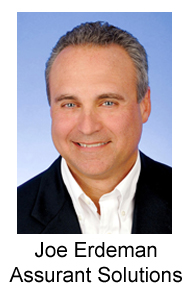
Underwriters declined to talk about the cost or the difficulty of securing and maintaining an A.M. Best rating, but they were more than willing to talk about its value. Joe Erdeman, executive vice president of Assurant Solutions and president of its Extended Protection Solutions Division, said it's a virtual necessity to secure an A- or better if one is going to do business as an underwriter.
"Number one, a lot of the larger entities that you might do business with will require an A-rated company to back the risk," he said. "And that will be in the contract. If you're not A-rated, then you've breached the agreement, because they want to make sure that they have financial stability behind the program."
Erdeman said A.M. Best generally suggests the levels of reserves and surplus that it believes are appropriate for each grade in every sector of the insurance business. In other words, an A+ has more funds available to pay claims than an A, and an A has more than an A-. But while A.M. Best considers a B++ and B+ to be "Good," that level generally doesn't pass muster with the dealerships or retailers that Assurant works with.
Jimmy Atkinson, senior vice president of Assurant Solutions' vehicle service contract line of business, said that with passenger cars, a lot of the lenders will insist on an A rating as well. "That's why many of the [third-party administrators] that are in the marketplace look for an A-rated carrier -- so they can ensure that the product can be financed," he said.
Longevity and Commitment

"The A rating tells you that the company is well-capitalized and is stable, and that A.M. Best has analyzed their book of business and feels like they have not only the capital to pay claims, but also some surplus above that as a cushion," Atkinson said.
"The thing that goes beyond that, though, is longevity," Atkinson said, "because there are a number of companies that get in and out of this business over the years. And so, I think one of the things that dealers and administrators should look at is a company that has been in the business for a long time."
The A rating is necessary, but not sufficient, Atkinson said. The A rating simply means that an underwriter can pay claims. The longevity factor shows to what degree they've learned to price the risk appropriately.
"The companies that have been in the market for a significant period of time -- and we're one of them -- have done a really good job of figuring out how to risk-manage the business, how to set rates properly, with proper actuarial analysis, and how to be able to come up with everything from handling claims properly at the dealer level all the way through that chain to ensure that the reserves are there to pay claims," he said.
In other words, dealers should look for administrators and underwriters that are in it for the long haul. Especially in a tough economy like this, Atkinson said, even an A-rated underwriter could decide that the volatility of vehicle service contracts and the unpredictability of auto sales just isn't for them. So they leave, and go back to banking or life insurance or whatever meets their internal metrics for stability.
"And if look back over the last 15 or so years, I think you'll find some of that has taken place," he added. But Assurant has been in VSCs for three decades. And Virginia Surety's parent company just celebrated the end of its fourth decade in the business. So there are carriers out there with both stability and longevity.
"And is it a core business to that company?" Erdeman asked. "The service contract business is clearly a core business of ours. We're in automotive, consumer products, and wireless. And it's a big part of our business. That would lead you to believe that we're committed to that marketplace."





